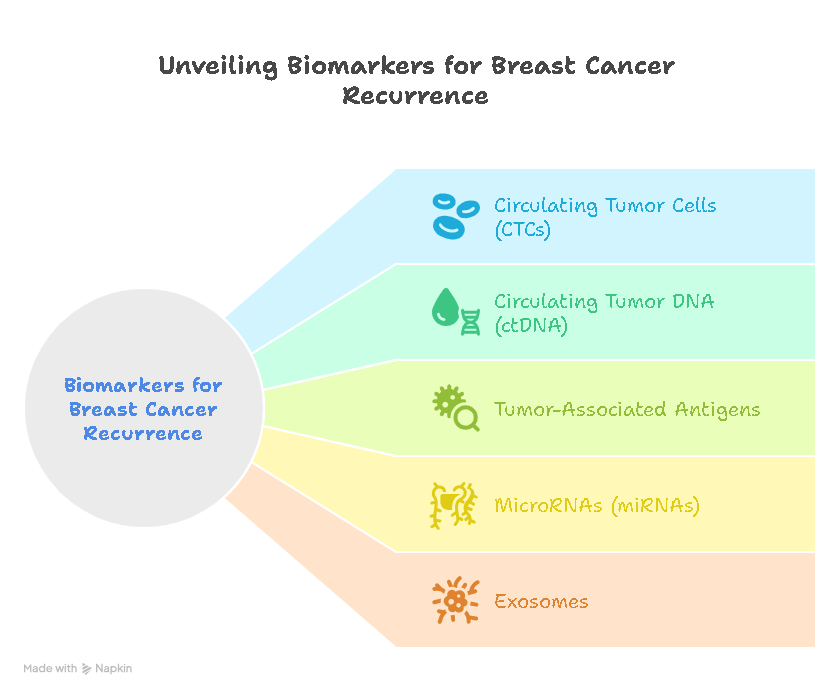“Discover the best foods to naturally boost lactation for breastfeeding mothers. Our guide provides valuable insights and a practical list of foods to support your breastfeeding journey. “The Science Behind Lactation and foods to boost lactation as explained by Dr.rsb,
Lactation is a complex biological process that involves hormones, glands, and nutritional factors. Prolactin and oxytocin are the primary hormones responsible for milk production and letdown, respectively. Proper nutrition plays a significant role in supporting these processes.
- Introduction
- The Importance of Lactation
- Nutrient-Rich Foods for Lactation
- Hydration and Lactation
- Lactation-Boosting Herbs
- Foods to Avoid
- Meal Planning for Lactation
- Recipes for Lactation
- Conclusion

The Science Behind Lactation
Top Lactation-Boosting Foods
Oatmeal: The Power Breakfast
Spinach: A Leafy Green Ally
Fenugreek: Ancient Herb, Modern Support
Almonds: Nature’s Nutrient-Rich Snack
Fennel: A Flavorful Lactation Enhancer
Hydration: The Unsung Hero
Meal Ideas for Lactating Mothers
Addressing Common Concerns
Can These Foods Really Boost Lactation?
How Quickly Will I See Results?
Are There Any Side Effects?
Introduction
Breastfeeding is a beautiful journey that provides essential nutrients and creates a strong bond between mother and baby. Ensuring an adequate milk supply is a concern for many lactating mothers. Fortunately, nature has provided us with a variety of lactation-boosting foods that can help nourish both you and your little one.

Top Lactation-Boosting Foods
Oatmeal: The Power Breakfast
Oatmeal is a nutritional powerhouse known for its ability to increase milk production. Rich in iron, fiber, and complex carbohydrates, it provides sustained energy while promoting lactation. Enhance your oatmeal with fruits and nuts for added flavor and nutrients.
Spinach: A Leafy Green Ally
Spinach is loaded with vitamins, minerals, and antioxidants. It’s particularly rich in folate and iron, which are essential for maintaining energy levels and supporting milk production. Incorporate spinach into salads, smoothies, and cooked dishes.
Fenugreek: Ancient Herb, Modern Support
Fenugreek has been used for centuries to boost milk supply. It contains phytoestrogens that mimic the effects of estrogen, a hormone that plays a role in lactation. Fenugreek supplements or tea can be beneficial, but consult your doctor before use.
Almonds: Nature’s Nutrient-Rich Snack
Almonds are a nutritious snack that provides healthy fats, protein, and calcium. They’re also a good source of vitamin E, which supports skin health and can prevent cracked nipples—a common concern among breastfeeding mothers.
Fennel: A Flavorful Lactation Enhancer
Fennel is a versatile herb with a mild licorice flavor. It’s believed to have galactagogue properties that stimulate milk production. Add fennel seeds to your meals, brew fennel tea, or incorporate fresh fennel into salads.
Hydration: The Unsung Hero
Staying hydrated is crucial for lactation. Drinking water and other hydrating beverages like herbal teas or coconut water ensures that your body has enough fluid to produce milk effectively. Aim for at least 8-10 glasses of fluids daily.
Meal Ideas for Lactating Mothers by dr.RSB
Breakfast: Start your day with oatmeal topped with berries and almonds, accompanied by a glass of water or herbal tea.
Lunch: Enjoy a spinach salad with grilled chicken, feta cheese, and a sprinkle of fennel seeds. Stay hydrated with water infused with citrus slices.
Snack: Munch on raw almonds and a piece of fresh fruit for an energy-boosting snack.
Dinner: Savor a grilled salmon fillet with steamed spinach and quinoa, followed by a soothing cup of fenugreek tea.
Addressing Common Concerns
Can These Foods Really Boost Lactation?
Yes, these foods can support lactation by providing essential nutrients and compounds that aid milk production.
How Quickly Will I See Results?
Results vary, but many mothers notice an increase in milk supply within a few days to a week of incorporating these foods into their diet.
Are There Any Side Effects?
In most cases, these foods are safe and nutritious. However, individual reactions can vary. Monitor your body for any adverse effects and consult a healthcare professional if needed.
Conclusion
Nourishing your body with lactation-boosting foods is a natural and delicious way to support your breastfeeding journey. Remember that every body is unique, so experiment with these foods to find what works best for you. Stay hydrated, eat a well-rounded diet, and cherish the moments of bonding with your baby through breastfeeding.
How often should I include these foods in my diet?
Incorporating a variety of these foods into your meals and snacks daily can offer ongoing support for lactation.
Can these foods replace other forms of lactation support, such as pumping?
While these foods can enhance milk production, pumping and frequent breastfeeding also play essential roles in maintaining a healthy milk supply.
Is it necessary to consult a doctor before using fenugreek supplements?
Yes, especially if you have existing medical conditions or are taking medications. Your doctor can help determine if fenugreek is safe for you.
Are these foods beneficial for exclusive pumping mothers too?
Absolutely. These foods can benefit any lactating mother, whether she’s exclusively breastfeeding or pumping.
Staying Consistent for Optimal Results
Consistency is key when incorporating lactation-boosting foods into your diet. While these foods can be beneficial, remember that they work best as part of a well-rounded nutrition plan. Aim to maintain a balanced diet that includes a variety of nutrient-rich foods.
Building a Supportive Meal Plan
Creating a meal plan that includes lactation-boosting foods can simplify your journey. Plan ahead by stocking your kitchen with the necessary ingredients, and consider batch cooking to ensure you have nourishing meals readily available.
Embracing Natural Remedies
Lactation-boosting foods are a natural remedy that has been embraced by generations of mothers. Unlike synthetic supplements, these foods offer whole-food nutrition that supports both your body and your baby’s growth.
Navigating Food Preferences and Allergies
Your dietary preferences and any existing allergies should be taken into account when selecting lactation-boosting foods. If you’re vegetarian, for instance, focus on plant-based sources of iron like spinach and fennel.
Enjoying the Culinary Experience
Incorporating these foods into your diet can be a delightful culinary adventure. Experiment with new recipes, flavors, and combinations to keep your meals exciting and satisfying.
Honoring Your Body’s Needs
While lactation-boosting foods can enhance milk production, remember that every breastfeeding journey is unique. Listen to your body, observe how it responds to these foods, and make adjustments based on your needs.
Addressing Concerns About Overeating
Some mothers worry about overeating while trying to boost lactation. Remember that it’s important to eat mindfully and in moderation. Lactation-boosting foods can be part of a balanced diet, but excessive consumption may lead to unwanted weight gain.
Nurturing Your Body and Soul
Breastfeeding requires a significant amount of energy and self-care. Alongside lactation-boosting foods, prioritize rest, relaxation, and emotional well-being to ensure a positive and fulfilling breastfeeding experience.
As a lactating mother, nourishing both yourself and your baby is of utmost importance. Lactation-boosting foods offer a natural and delicious way to support your milk supply while providing essential nutrients. Embrace these foods as part of your overall nutrition plan and relish the joy of nurturing your baby through breastfeeding.
FAQs about Lactation-Boosting Foods
Can I combine these foods in a single meal for better results?
Absolutely. Combining lactation-boosting foods can create nutrient-rich meals that provide comprehensive support for lactation.
Do lactation-boosting foods have an impact on the taste of breast milk?
Yes, some mothers notice a mild change in the taste of their breast milk when consuming certain foods like garlic or spices. This change is generally well-received by babies.
Are there any foods I should avoid while breastfeeding?
While lactation-boosting foods are beneficial, some babies may be sensitive to certain flavors through breast milk. Pay attention to your baby’s reactions and adjust your diet if needed.
Can I still take lactation supplements alongside these foods?
If you’re considering lactation supplements, it’s advisable to consult your doctor before doing so, especially if you’re already incorporating lactation-boosting foods into your diet.
How long should I continue eating these foods for lactation support?
You can continue enjoying lactation-boosting foods as long as you’re breastfeeding. Over time, your body’s nutritional needs may change, so adjust your diet accordingly.
Elevate your breastfeeding experience by embracing these nutrient-rich foods, and celebrate the special connection you’re nurturing with your little one. Remember, your breastfeeding journey is a unique and powerful chapter of motherhood.
Seeking Professional Guidance
While incorporating lactation-boosting foods into your diet can be beneficial, it’s important to consult with a healthcare professional, such as a registered dietitian or lactation consultant, if you have any concerns or specific dietary needs. They can provide personalized recommendations based on your individual health and nutritional requirements.
Mindful Eating for Lactating Mothers
Practicing mindful eating can enhance your breastfeeding experience. Focus on savoring the flavors, textures, and aromas of your meals. Eating slowly and paying attention to your body’s hunger and fullness cues can help you make nourishing choices.
Balancing Lactation Foods with Other Nutrients
While lactation-boosting foods play a role in supporting milk production, it’s essential to maintain a well-rounded diet. Include sources of protein, healthy fats, carbohydrates, and a variety of vitamins and minerals to meet your overall nutritional needs.
Sharing Your Knowledge with Other Mothers
As you embark on this lactation-boosting journey, consider sharing your experiences and insights with other breastfeeding mothers. Support groups, online forums, and social media platforms can be wonderful spaces to exchange tips and encourage one another.
Making Gradual Changes
Introducing new foods into your diet can be an exciting process, but it’s wise to make changes gradually. This allows your body to adapt and minimizes the risk of digestive discomfort.
Celebrating Your Nourishing Bond
Remember that breastfeeding is about more than just nutrition—it’s a profound and nurturing bond between you and your baby. Cherish the quiet moments, the skin-to-skin contact, and the sense of comfort you provide to your little one.
Elevating Your Breastfeeding Experience
Incorporating lactation-boosting foods into your daily routine can elevate your breastfeeding experience. These foods offer a tangible way to care for both your own well-being and the growth of your baby.
Your journey as a breastfeeding mother is a remarkable one, filled with love, growth, and nurturing. Lactation-boosting foods provide a natural and nourishing way to support your body’s incredible ability to provide for your baby. As you enjoy these foods, remember that you’re contributing to a legacy of strength, connection, and care that spans generations.
FAQs about Lactation-Boosting Foods
Can I continue consuming lactation-boosting foods after I stop breastfeeding?
Absolutely. Lactation-boosting foods are generally nutritious and beneficial for overall health, even beyond the breastfeeding stage.
Can fathers consume these foods to support breastfeeding mothers?
While lactation-boosting foods can offer nutritional benefits, they may not have the same effect on non-lactating individuals. However, supporting a breastfeeding mother’s nutritional needs through shared meals can be meaningful.
Are there any lactation-boosting foods I should avoid if I’m on a specific diet?
If you have dietary restrictions, such as allergies, sensitivities, or medical conditions, tailor your choices to align with your diet while still focusing on nutrient-rich options.
Can I continue taking prenatal vitamins while eating these foods?
Prenatal vitamins can complement a balanced diet, including lactation-boosting foods. Consult your healthcare provider to determine if continuing prenatal vitamins is appropriate for your situation.
Can these foods replace breastfeeding supplements altogether?
Lactation-boosting foods can provide a natural and holistic form of support. However, individual needs vary, and some mothers may still find benefit from specific supplements. Discuss your options with a healthcare professional.
As you embark on this nourishing journey, remember that every step you take in caring for yourself and your baby is a testament to your love and dedication. Cherish the moments and the nourishing bond you’re creating—one meal at a time.











Leave a Reply